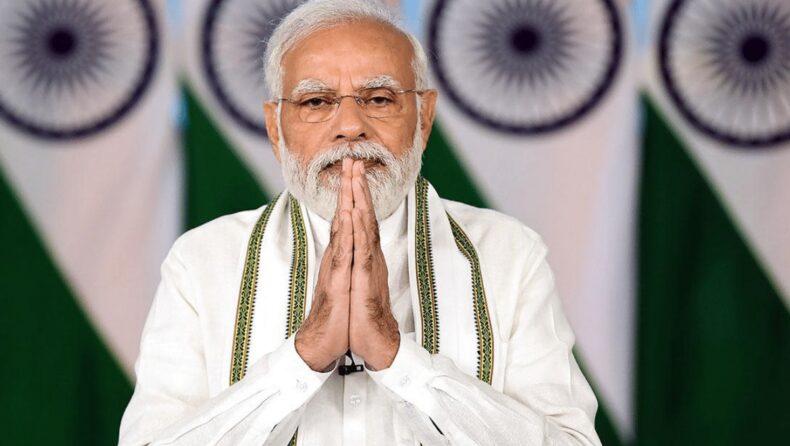
India criticized the divisive BBC documentary on Prime Minister Narendra Modi and the Gujarat riots on Thursday, claiming it lacked objectivity and revealed a colonial mentality. The foreign ministry claimed the documentary was propaganda intended to promote a specific “discredited” narrative while stressing that it had not been aired in India.
Protest Against BBC
Following protests by the Indian community in the UK, which criticized “BBC’s biased and discriminatory coverage” of events, the government denounced the documentary. The two-part BBC documentary “India: The Modi Question” claims to have looked at the details of the riots that occurred in Gujarat in 2002 while Modi was the state’s chief minister. The prejudice, the lack of objectivity, and, quite frankly, the persistence of a colonial mindset, are glaringly obvious. At the weekly briefing, Arindam Bagchi, a spokesperson for the ministry of external affairs, stated that this movie or documentary “is, if anything, a reflection on the agency and persons that are selling this narrative again.”
He continued, “It makes us question the motivation behind this exercise and the agenda, and honestly, we don’t want to elevate such initiatives.”
Based on an investigation by a Special Investigation Team that it had ordered to look into specific instances, the Supreme Court of India exonerated Modi of the charge of involvement in communal violence. This included a claim that Modi, as Gujarat’s chief minister at the time, had instructed police not to stop rioters targeting Muslims. This claim was highlighted in the documentary.
When questioned about remarks made by the former British foreign secretary Jack Straw on the riots, Bagchi claimed that Straw appeared to be referring to an internal UK government assessment.

“How can I get a hold of that? It is a report from 20 years ago. Why would I just act right away? How do they give it so much credibility just because Jack Straw says it? He asked.
“I heard phrases like investigation and inquiry. We used the term “colonial mindset” for a reason. We don’t mince words around here. What question? Is the country being ruled, as the investigation suggests? I disagree with that description,” he continued. In response to a query on allegations of fatalities of UK people, Bagchi stated that if there were deaths in India, the national legal procedure had to be followed. “I’m not sure if they started dating in 2002. There have been numerous legal actions taken in response to fatalities that have occurred throughout that time, “added he.

The British Indian diaspora feels enraged and deeply antagonized by BBC’s selective and prejudicial representation of what transpired, according to British Indian Adit Kothari, founding member of the Indic Society in the UK. The Indic Society aims to “dismantle the negative western narrative about India and Indic civilizational values.” Overseas Friends of BJP UK President Kuldeep Shekhawat declared: “I completely reject this broadcast by the BBC. It is unacceptable, biased, and devoid of real facts. A democratically elected government’s leader is unfairly being singled out for something he hasn’t done.
How can the BBC pursue him in this way when the Supreme Court of India cleared him of all charges? We suspect there are special interests behind this who wish to halt India’s and Modi’s ascent. The BBC, on the other hand, defended the documentary and said it was “rigorously researched according to highest editorial standards.” It claimed to have spoken with a “broad spectrum of witnesses, experts, and viewpoints” and to have “included a diversity of opinions, including comments from members of the BJP. We gave the Indian government a chance to respond to the issues brought up in the series, but it declined.
In response to a question regarding claims that UK citizens had died, Bagchi said that national legal procedure had to be followed if there had been deaths in India. “If they started dating in 2002, I’m not sure. In reaction to deaths that have occurred throughout that time, several legal measures have been launched, “he noted. British Indian Adit Kothari, a founding member of the Indic Society in the UK, claims that the British Indian diaspora is extremely offended by the BBC’s biased and selective portrayal of what happened.
“Dismantle the negative western narrative about India and Indic civilizational ideals,” is the mission statement of the Indic Society. The documentary was “rigorously researched according to highest editorial standards,” according to the BBC, which defended it. It stated that it had “included a plurality of ideas, including remarks from members of the BJP” and had spoken with a “wide spectrum of witnesses, experts, and viewpoints.” The Indian government was allowed to address the issues raised in the series, but it declined.












